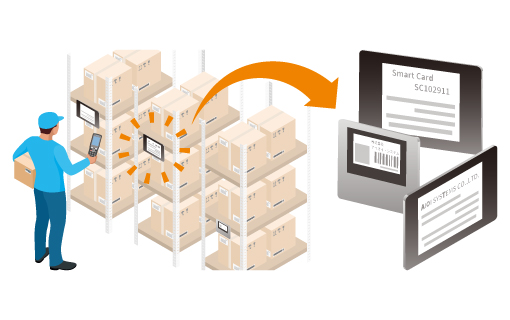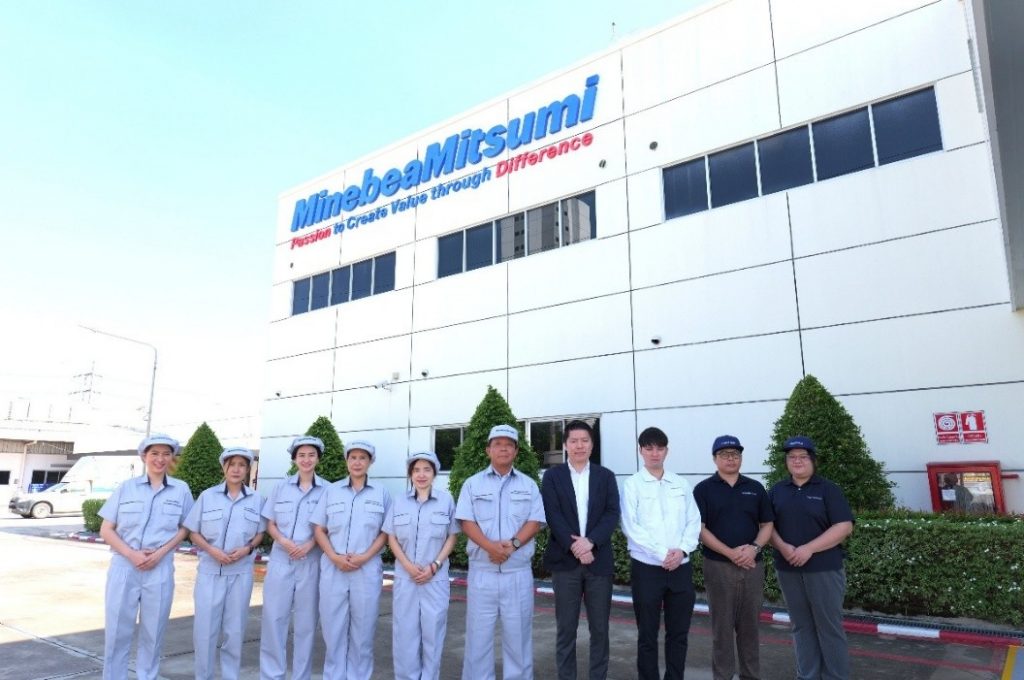RFID / Smart Card
RFID (Radio Frequency Identification) and smart cards are systems that utilize wireless communication technology to identify items and individuals, enabling the management and tracking of various information. They are employed across diverse sectors, including manufacturing, logistics, retail, services, and transportation, contributing to efficient individual identification, enhanced traceability, and improved inventory management.
With RFID tags and readers, it is possible to read multiple tags simultaneously, streamlining labor-intensive tasks such as inventory counts and inbound/outbound operations. Additionally, smart cards utilize electronic paper and NFC (Near Field Communication) technology, allowing for easy rewriting of barcodes and information from smartphones and other devices. As a solution that reduces the consumption and disposal of paper labels, it is also environmentally friendly, representing a “visible RFID” approach.

Benefits
- Efficient Data Collection
RFID tags can read multiple tags simultaneously, enhancing the efficiency of inbound and outbound operations as well as inventory counts, thereby improving work speed. - Real-Time Inventory Management
By utilizing RFID systems, real-time inventory information can be obtained, allowing for accurate tracking of inventory status. This helps prevent stockouts and overstocking, enhancing the precision of inventory management. - Improved Traceability
RFID tags facilitate easy individual identification of products, enabling tracking from production to distribution and sales. This is advantageous for quality management and legal compliance, thereby increasing reliability with customers. - Labor Saving and Cost Reduction
RFID and smart cards eliminate the need for barcode scanning and data transcription, reducing work time and labor costs. This also decreases errors, leading to an overall reduction in operational costs. - Reduced Environmental Impact and Flexible Information Updates
Smart cards employ electronic paper, allowing for easy information rewriting via smartphones and other devices, which helps reduce the consumption and disposal of paper labels. This environmentally friendly system enables real-time updates of information.







